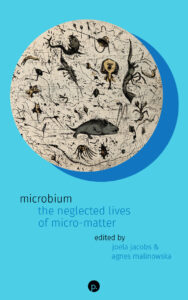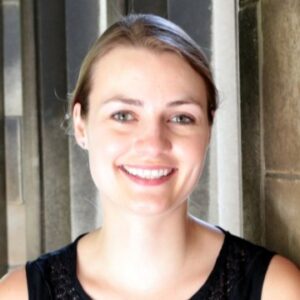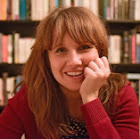Edited by Joela Jacobs and Agnes Malinowska.
punctum books, 2023.
Microbium: The Neglected Lives of Micro-matter tells the story of small matter such as bacteria, coral, fungi, lichen, pollen, protozoa, and viruses. With short entries that are organized like a herbarium or similar specimen collection, the book is a “microbium”—both the term for a single microbe and a play on “microbiome.”
As such, Microbium makes visible the often overseen but huge impact of miniscule matter on human culture and the environment. Each entry is a “microscopic reading” that describes the natural history and scientific discovery of a particular form of micro-matter, while also telling a story about the cultural and artistic roles it has played over the centuries. From the poetry of Emily Dickinson to the “coralness” of coral reefs to contemporary literature about the COVID-19 pandemic, this book places micro-matter under a cultural microscope and translates the significance of the invisible interspecies social realm to the human scale, magnifying the many ways in which micro-matter matters. Ultimately, Microbium shows the potential of micro-matter to teach us how to revitalize our political and cultural systems, habits of thought, and aesthetic or representational modes
Editors:

Joela Jacobs is Assistant Professor of German Studies at the University of Arizona and founder of the Literary and Cultural Plant Studies Network. Her research focuses on nineteenth- to twenty-first-century German literature and its intersections with the environmental humanities, specifically plants, animals, and environmentalist culture, as well as Jewish studies, the history of sexuality, and the history of science. She has published on monstrosity, multilingualism, literary censorship, biopolitics, animal epistemology, zoopoetics, phytopoetics, cultural environmentalism, and contemporary German Jewish identity.

Agnes Malinowska is Assistant Instructional Professor in the MA Program in the Humanities and English at the University of Chicago. Her teaching and research focuses on American modernism and modernity, nonhuman studies, the history of science, and gender and sexuality studies. Agnes’s recent writing appears in the journal Modernism/modernity.
Contributors:
Karen Leona Anderson is Associate Professor of English at St. Mary’s College of Maryland. She is the author of two collections of poetry, Punish honey (Carolina Wren) and Receipt (Milkweed Editions). Her scholarly and creative work has appeared in numerous journals and anthologies including the ecolanguage reader, The Ecopoetry Anthology, and The Best American Poetry. Her most recent scholarly work is on Emily Dickinson, fungi, and scale shifting.
As the granddaughter of two German foresters, Helga G. Braunbeck grew up close to nature. Her first garden was a mini-forest of small trees transplanted from the real forest. She moved on to study German and English literature in Tübingen/Germany, Oregon, and California and is now Professor of German Studies at NC State University in Raleigh, NC. Her two books discuss issues of authorship in GDR writer Christa Wolf, and intermediality in the work of Prague German author Libuše Moníková. After her second book, she turned her attention to the environmental humanities and became especially interested in literary and cultural plant studies. She has published about Klaus Modick’s novella Moss, lignite mining in German culture, and the impact of the Anthropocene on gardens and gardening in recent German literature. Her current projects focus on plant poetics and literary representations of arboreal imaginaries. And her current garden is filled with flowers, veggies, wildlife, and more than sixty trees. The older ones are covered in lovely moss and lichen.
Damien Bright is a Research Associate at the Institute for Advanced Sustainability Studies in Potsdam, Germany. He received his PhD in Anthropology from the University of Chicago in 2022. Damien’s research engages critical natural history, animal studies, and the psychosocial dimensions of modernist technoscience. He is currently conducting a multi-sited ethnographic investigation of the technopolitical dimensions of ocean engineering as part of the EU-funded OceanNETs consortium. Whither The Reef?, his first book manuscript, is in preparation and builds on his dissertation research into efforts to salvage the Great Barrier Reef from its predicted demise. The book explains the practical and moral quandaries that the sciences of marine life encounter, along with their supporters and detractors, in the push to design large scale and largely experimental “interventions” in the name of planetary care. Damien’s writing has appeared in Techniques & Culture and Diseña.
Dani Lamorte is a Pittsburgh-based artist working in performance, video, photography, and text. He has performed and shown work at the Andy Warhol Museum (Pittsburgh), University of Arizona Museum of Art (Tucson), Human Resources (Los Angeles), Whippersnapper Gallery (Toronto), Studio Beluga (Montréal), and Mattress Factory (Pittsburgh). Dani is a contributing writer for Cleveland Review of Books and has published essays in Edge Effects, Sundog Lit, and Journal of Critical Library & Information Studies. Dani’s first book of essays, Of Fakes, is under contract with the University Press of Kentucky.
Raymond Malewitz is Associate Professor of English at Oregon State University. He is the author of one monograph, The Practice of Misuse (Stanford, 2014), and is at work on a second, tentatively entitled “Epizootic Encounters: A Cultural History of Animal Disease.” His work has appeared in journals such as Critical Inquiry, PMLA, Modern Fiction Studies, and Configurations as well as more popular venues such as The Washington Post.
Ada Smailbegović is Assistant Professor of English at Brown University. She is the author of Poetics of Liveliness: Molecules, Fibers, Tissues, Clouds and a cofounder of the digital publishing platform the Organism for Poetic Research. Her published essays and poetic work have appeared in a variety of venues, including differences, Comparative Literature, Triple Canopy and angelaki.
